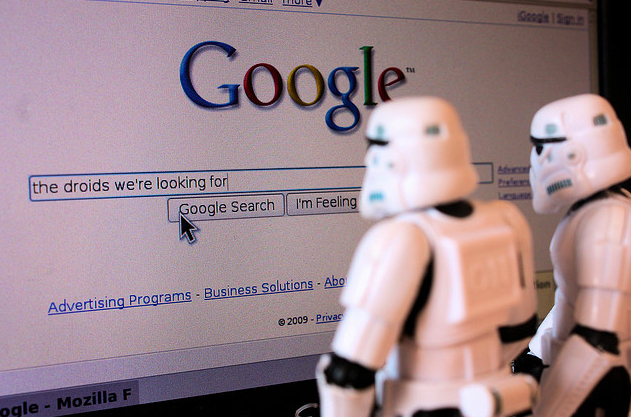
Do you remember life before fax machines, email and searching online? Do you remember making an appointment to see your doctor to get an opinion without being able to Google professional and everyday opinions on your computer first? It's like a movie you watched years ago with a plot that's vaguely familiar but has no relevance to your current life.
That's how you'll think of the current web versus the social web that's expanding daily.
The epicenter of the social web has become Facebook. You already know that over 500 million people use Facebook. Did you also know that people spend over 700 billion minutes on Facebook per month, or that Facebook just surpassed Google to be the #1 site on the internet?
It's Google and Facebook's world today and we just surf it. As a Facebook or Google user you win no matter what because they're building better products, but this world has not been peaceful since Google and Facebook have unofficially declared war on each other over the past few months. Most people have not noticed that it's even happening, but it will affect all of our online habits in the future. It will also affect the advertising you consume and the availability of your private information.
This war over data will reshape our online ecosystem. Facebook and Google continue to change their minds about how much data they will share with each other. The main reason for this is that you have a Facebook ecosystem of contacts and lifestyle information that rivals your Gmail contact list and your Google search profile. Each ecosystem has some valuable data that the other does not.
At this point Facebook appears to have the upper hand in the war over your attention. Facebook has become the center of the social web with more page views and more time spent on their site than a Google search page will ever commandeer. The release of the Facebook "Like" button on web pages across the globe was a tipping point for socializing the web rather than just using isolated social websites. In their recent effort to have users add Facebook as their web browser home page, Facebook just took another leap forward in having us unconsciously experience Facebooking as the main reason to be online.
 Google has been unsuccessful in their attempts to join the social web so far. Google Wave crashed as an experiment in real time messaging and collaborative project development. Google Buzz is still humming along, but has failed to gain widespread adoption, which is the name of this game. Some new products and features seem great when they roll out, but if masses of people do not choose to use them then they wither on the vine. So far, Google is winning this battle in the areas of online search and email, but losing them on the social media front.
Google has been unsuccessful in their attempts to join the social web so far. Google Wave crashed as an experiment in real time messaging and collaborative project development. Google Buzz is still humming along, but has failed to gain widespread adoption, which is the name of this game. Some new products and features seem great when they roll out, but if masses of people do not choose to use them then they wither on the vine. So far, Google is winning this battle in the areas of online search and email, but losing them on the social media front.
The ultimate result of the ensuing war over your online social habits is that you'll see Facebook and Google both bending over backwards to create more inventive ways to make it easier, faster and more fulfilling for you to communicate with your friends and business colleagues online. Watch for Facebook to add features that let you search the web while staying on Facebook, and watch for Google to add features that connect your social graph and help you more to connect to your friends online.
